So far, 2025 feels like the year of the zag. During the spring, many of the most exciting breakout artists of the past four years or so announced their return with a project that wound up being even more unexpected than the LP that recently launched them to stardom, in most cases exhibiting a sense of creative freedom that signifies a bold step forward rather than a retread of a tried-and-true formula many of their fans may have been expecting. And that doesn’t just apply to a certain unlikely pop star’s 90-minute drone composition.
Yet the year has also been full of new material from more consistent artists and newly breaking figures, as well as long awaited solo debuts, exhilarating collaborations, and even a few signs of vibrant life from projects that had remained dormant for a decade (or two and a half). While there’s still plenty of 2025 left, here are 25 records that have caught our attention thus far, catching us by surprise in one way or another.

Bad Bunny, DeBÍ TiRAR MáS FOToS
Dabbling with traditional Puerto Rican sounds through a lens of modern pop, DeBÍ TiRAR MáS FOToS is Bad Bunny’s creative opus. The trap-infused beats Benito has become known for are muted here, with reggaeton, salsa, and plena rhythms taking over—there may even be a soca influence detectable on “DtMF.” Benito pioneers a pleasingly nostalgic Latin sound on his latest record that infuses Boricua music and culture with a dash of self-discovery in song form. It’s also no coincidence that he dropped the album on January 5, nearly coinciding with the anniversary of the Comité Revolucionario de Puerto Rico, a revolutionary group who fought for independence against the former colonial power Spain (salsa itself possesses a subversive nature—a rhythmically festive genre, but one lyrically concerned with overcoming pain). Its politics are evident throughout the lyrics, with songs like “TURiSTA” and “BOKeTE” exploring neoliberalism’s destructive grip on Puerto Rico, resulting in a crumbling infrastructure, gentrification, and rampant inequality. Although DTMF is Puerto Rican at heart, Benito also can’t help but play with elements of hip-hop. It’s just another among many layers on a profound album that subversively plays with revolutionary ideas and genre while still leaving room for bangers. — Juan Gutierrez
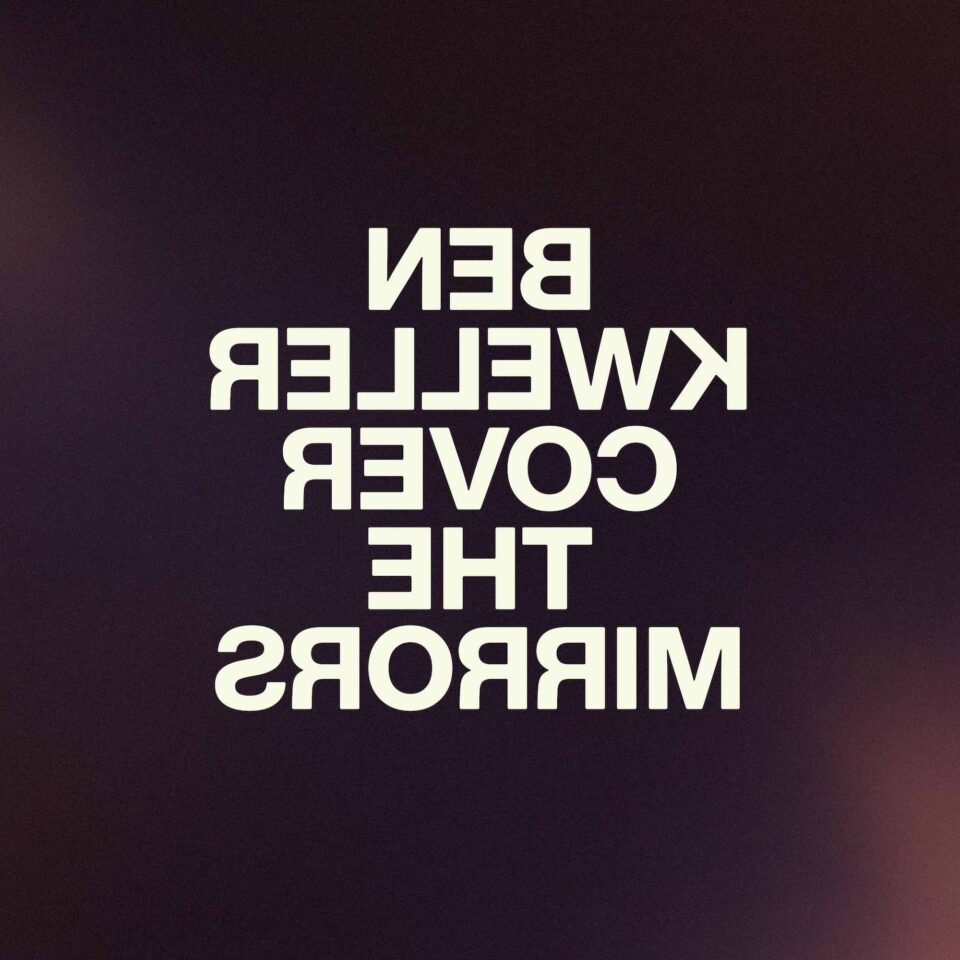
Ben Kweller, Cover the Mirrors
Ben Kweller has always made light-at-the-end-of-the-tunnel music. He knows how to write an anthem for the underdogs, and he casually makes small moments feel like revelations with his earnest vocals and pure-hearted melodies. It’s the kind of music that will comfort you when you’re down and instill a supportive reminder that at least you’re not out. That sentiment has never felt more powerful than on his latest album, Cover the Mirrors. When I heard “Dollar Store” with Waxahatchee, one of the album’s singles, it met me in a low state and with no judgement. The track is centered around a twisted guitar melody that sounds like it’s hanging on to a depression nap for dear life; the song’s cathartic build and explosive ending is like a hug from a loved one, an urgent reminder that there’s plenty to live for. Incredibly, that’s how most of Cover the Mirrors feels. It’s an album that navigates grief, dedicated as it is to Kweller’s late son Dorian who died in a car accident in 2023. Every song feels like a miracle, wrestling with mortality’s absurdity and using songwriting as a medium for questioning, healing, and connecting. — Margaret Farrell
Read our review of Cover the Mirrors here.

Benjamin Booker, Lower
When Florida-born Orleans parish singer Benjamin Booker gets the blues, he likes to funnel its lightning-loud, Albert King–stylized classicism with a hint of the crackling garage-rock ardor of The White Stripes—that’s been a given since his 2014 self-titled debut. With Lower, however, Booker goes lower still to an icier sonic space, and with the help of shuddering electro-rap producer Kenny Segal he finds the fight in his cause and righteous indignation everywhere. “Black Opps” looks at empowered African Americans of the past (and surely present) being brought down by the US government. The children at the center of “Same Kind of Lonely” are given dark context within a collage of school shooting audio clips. Those less fortunates brought to heel by addiction and homelessness are given light and hope, even if they have to claw their way through the darkness to get there. “I see the way they talk about people on this side of town,” a bruised Booker intones on “LWA in the Trailer Park,” a moment not unlike King’s “Born Under a Bad Sign.” Maybe Lower is a lot to take in all at once, and maybe Booker’s third album isn’t an obvious choice for one of the best of 2025, as it seems from another time—long before January. Either way, Lower lingers like a haunting refrain and the darkest of nu-politics screeds. — A.D. Amorosi
Read Booker’s track-by-track breakdown of Lower for FLOOD here.

billy woods, GOLLIWOG
The greatest horror stories are the ones we’ve collectively lived. As an experimental rapper who doesn’t follow a beat so much as he exhaustively mines desolate caverns of sound, billy woods is especially well-suited to rummage around this idea. His off-kilter flow refuses the simple catharsis of predictable rhythmic impact, requiring the listener to focus our ears in a similar way to how our eyes scour a horror film’s dark frames for any figures lurking in the abyss. Even in a career full of unshakably heavy bars, the compounding effect of GOLLIWOG feels like being slowly pressed, Giles Corey style, never a moment of respite as the record walks an uncompromisingly bleak march through histories of racism, grief, and state-sponsored violence. In the misophonic overload of “STAR87” or the haunting minimalism of “Waterproof Mascara,” there’s nowhere to hide from the brutal realities woods combs through. But where GOLLIWOG excels as more than an exercise in disconsolate negative space is its affecting place as a sustained mood piece, an album where it’s disarmingly clear that woods is uttering every crushing word only because each is so deeply felt. In the somber “All These Worlds Are Yours,” there’s a palpable ache in how he reflects on witnessing fatal violence on the other side of the world, laying bare the helplessness of those killed by oppressive forces. And what’s scarier than knowing there are pockets of the world where those very real terrors lurk? — Natalie Marlin

Blondshell, If You Asked for a Picture
The music of Blondshell is generally disarming and quietly subversive, but noisy and tough when she needs it to be. If You Asked for a Picture is Sabrina Teitelbaum’s second album, and is a stirring follow-up to her brilliant 2023 debut. Drawing on life experience, she sings of small dramas and again presents herself as a fearless explorer of the deep end. The record reunites her with producer Yves Rothman, who arranges evocative layers of feeling and indie-rock guitar noise without overwhelming the human heart underneath (there’s even a hint of The Cure on “Toy”). The words are sharp and biting, her delivery yearning and conversational, as Teitelbaum deals with heavy subjects as internal monologue rather than primal scream. Opening track “Thumbtack” starts with the pure jangle of acoustic guitar, bright and hopeful, set to a Fleetwood Mac beat, as her voice grows more urgent, singing to an imperfect lover. As ever, she sings from a place of calm amid the chaos of life and human relationships, catching her breath as the world closes in. “What’s Fair” is a chronicle of a difficult relationship between a daughter and mother, and “Two Times” questions the value of a romance that lacks conflict. Elsewhere, Blondshell is lovesick, or sometimes just sick of you, or vaguely unsatisfied and confused, and needing your company just the same. — Steve Appleford
Read Blondshell’s track-by-track breakdown of If You Asked for a Picture for FLOOD here.

Clipse, Let God Sort Em Out
Despite having not released an album since 2009, Clipse’s Let God Sort Em Out sounds as if the duo never stopped recording together. Pusha T and Malice being brothers helps, as did their respective work while apart as Malice distanced himself from the coke rap that helped usher the duo to prominence. Throughout the ethereally produced (by longtime collaborator Pharrell Williams) Let God Sort Em Out, the pair spews venom toward rivals Drake, Travis Scott, and Jim Jones, among others, with barbs peppered with stinging clarity and detailed receipts of their targets’ transgressions. Elsewhere, Malice in particular consistently reflects on the downsides of the drug world (and, tangentially, rapping about it). On “P.O.V.,” he notes the duality of his character and of his loyalties by confessing, “Came back for the money, that’s the devil in me” after a stellar verse from Pusha T replete with the mind-blowing drug-based wordplay that’s remained the bedrock of his work. Yet Clipse shine brightest on “The Birds Don’t Sing,” which features Pusha T rapping about the loss of his and Malice’s mother, while Malice reflects upon the passing of their father. It’s an homage to all that their parents provided for them, channeling the guilt that the duo feels by letting them down. Plenty to sort out, indeed. — Soren Baker
Read our review of Let God Sort Em Out here.

Deafheaven, Lonely People with Power
It often strikes me as surprising that Deafheaven have managed such a unique crossover success story for a band that’s still so unapologetically black-metal—but then they release another album. Sure, there are plenty of equally visionary groups that deserve a similar level of success, but few of them are able (or willing) to inhabit the razor-thin center of the Venn diagram between “fully possessed extreme metal” and “opening act for Interpol.” After 2021’s Infinite Granite suggested that the band, like Turnstile, would begin to explore experimental paths leading them away from their harsh origins as their star suddenly rose, Lonely People with Power is an undeniable blend of the pure, vicious strain of blackgaze perfected on New Bermuda 10 years ago with sharp production details most impressively displayed on the record’s “Incidental” tracks, which range from unexpectedly soothing ambient to chilling harsh noise (even as a fan of his band, I may be guilty of having rolled my eyes at a Paul Banks feature, yet his spoken-word interlude is far from shoehorned in). Somehow none of that even begins to prepare you for the final dismount—a new zenith in the movement to fuse the natural pairing of black metal and shoegaze. — Mike LeSuer
Read our review of Lonely People with Power here, and find Deafheaven’s track-by-track breakdown of the album for FLOOD here.
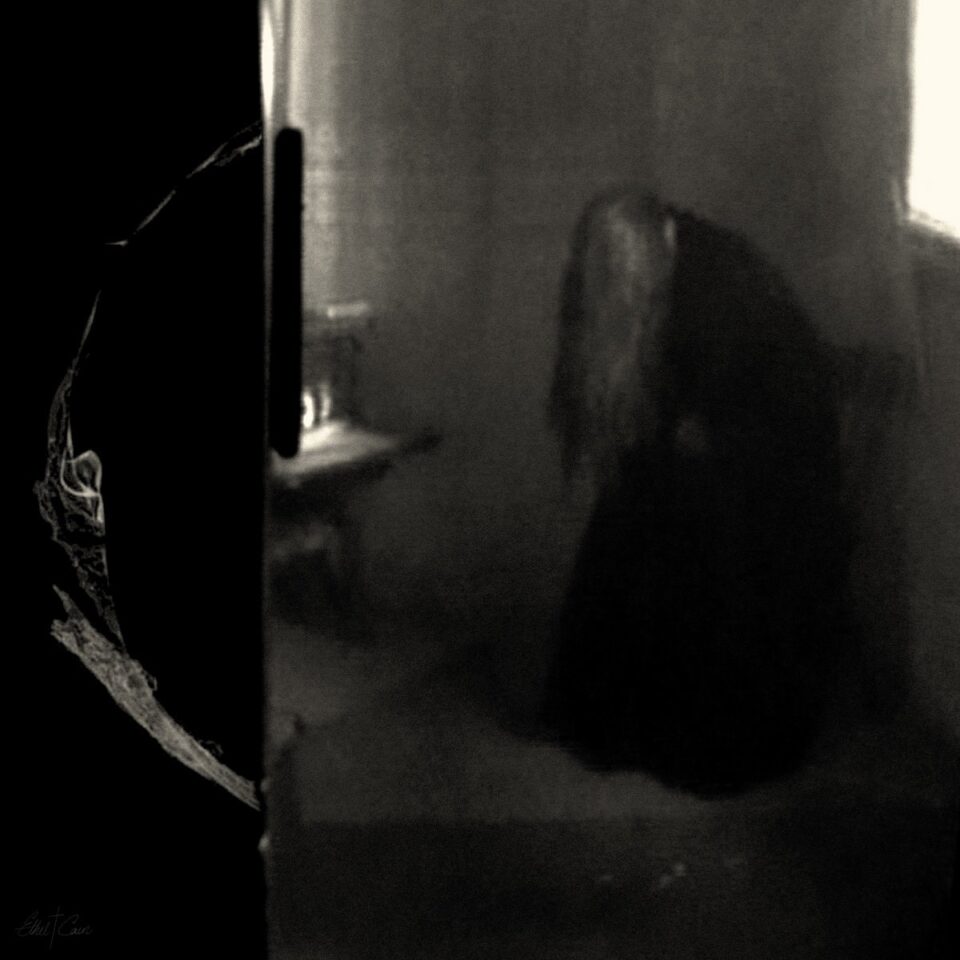
Ethel Cain, Perverts
Though its nine tracks are almost 90 minutes long, Perverts isn’t an actual album, according to its creator. Rather, this drone-inspired record that scared, confused, and put off a lot of Ethel Cain’s fans upon its release in January is an experimental sideshow that has nothing to do with her 2022 debut, Preacher’s Daughter, nor the two forthcoming records that will complete that narrative trilogy. Except, of course, for the fact that Cain is behind it. The project is a starkly haunting, harrowing, and challenging piece of music that transports the listener into a wholly unrecognizable world from that of Preacher’s Daughter (as well as from the singles we’ve heard so far from next month’s Willoughby Tucker, I’ll Always Love You LP). Especially early on during the eerie, old-timey introduction of the opening title track and the periods of near-but-not-quite silence that follow over the song’s 12 minute run-time, it feels like you’re in the pitch black of a horror film or video game, such is the visceral sense of dread and unease that underlines this record. Yet there are (very necessary) moments of sublime and poignant beauty, too. It all makes for a demanding but immensely rewarding listen that marks Cain out as a truly incredible, iconoclastic talent. — Mischa Pearlman
Read our review of Perverts here.

FKA twigs, Eusexua
On her first studio album in five years, FKA twigs goes high-concept, as always. Eusexua is avant garde pop, soul, and EDM, but is never bound by genre. The title is her collision of “euphoria” and “sexual,” and is meant to represent “a feeling that transcends human form.” While she gets there with the help of multiple ace producers, it’s the singular voice and vision of twigs herself that defines every moment. In some ways, this is a club record, though her impulse for the experimental and deeply felt leads her far beyond the dancefloor. The album opens with the anxious title track, her vocal aching and alluring: “Do you feel alone? / You’re not alone.” The track kicks into a dazzling techno beat at the halfway mark, then slows again, leaving room for a whispered admission: “I was on the edge of something greater than before / But nobody told me.” She sings with breathless urgency on “Perfect Stranger,” the most accessible and stripped-down track of the album, and it still has the feeling of what’s next. A genuine post-genre artist, twigs can’t help herself, collating the fragments of culture to her own ends. She’s a rare talent, and maybe another in the lineage of art-pop alchemists that includes Björk, Bowie, and Prince. Like the best of those icons, Eusexua is designed to soothe and provoke. — Steve Appleford
Read our review of Eusexua here.

Ghais Guevara, Goyard Ibn Said
It’s hard to shake the end-of-an-era feeling that hits when a rapper caps off a series of increasingly compelling mixtapes with a proper label debut—in the case of Philly emcee Ghais Guevara, an outpouring of post–Shaun King renegade-leftist shit talking backed by Spongebob samples, which will now require approval from the one-time Southern blues indie label Fat Possum. Yet rather than creatively stifling Ghais, Goyard Said Ibn manages to expand upon the young rapper’s repertoire via a formal two-act story that still finds plenty of room to poke fun at the concept of such structuring in its interludes. These 16 tracks bounce between the sounds of rowdy, bass-pulsing live rap shows and something considerably more refined, as heard on the classically styled drumless duet with McKinley Dixon “The Apple That Scarcely Fell” (also, is that Squidward I hear?). Most notably, though, Ghais sounds more confident than ever as a vocalist, with the light modulation on “4L” and the natural flutters on “3400” providing two of the record’s most memorable moments outside of its relentless wordplay and wholly unique beats, mostly self-supplied. It’s hard not to be excited about the beginning of this new era—though, as Goyard’s closing statement confirms, it’ll be one that’s just as incisively unfiltered. — Mike LeSuer
Read our interview with Ghais Guevara about Goyard Ibn Said here.
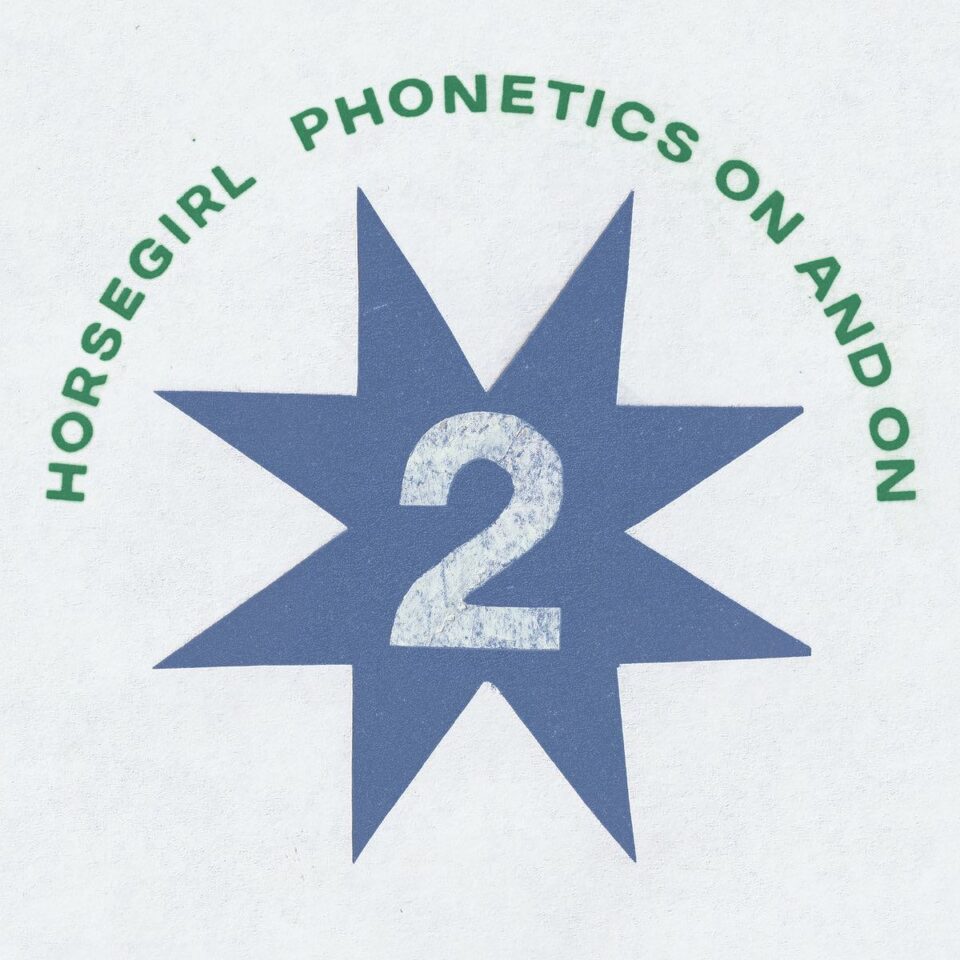
Horsegirl, Phonetics On and On
For Horsegirl—the indie rock trio of Nora Cheng, Penelope Lowenstein, and Gigi Reece—their second album, Phonetics On and On, was as much about paring things back as it was adding further flourishes. Where their debut Versions of Modern Performance embraced a fuzzed-out chaos, this record explores just how spare they can make things without losing any of the verve that made their debut such a success. A song like “Frontrunner,” with its lazy groove, typewriter percussion, and wordless chorus, is both proof of concept and a showcase of the kind of airtight pop instincts and effortless cool that make this young band so exciting. It should be noted that Horsegirl have always possessed all of the bonafides of indie rock it-band status: their blend of influences—which weave a throughline between The Velvet Underground, Yo La Tengo, and Minutemen (their recent cover of “History Lesson Part 2” rips)—are practically catnip to music critics far and wide. What Phonetics On and On proves, among other things, is just how deserving this Matador-signed band is of such effusive hype. — Sean Fennell
Read our review of Phonetics On and On here.
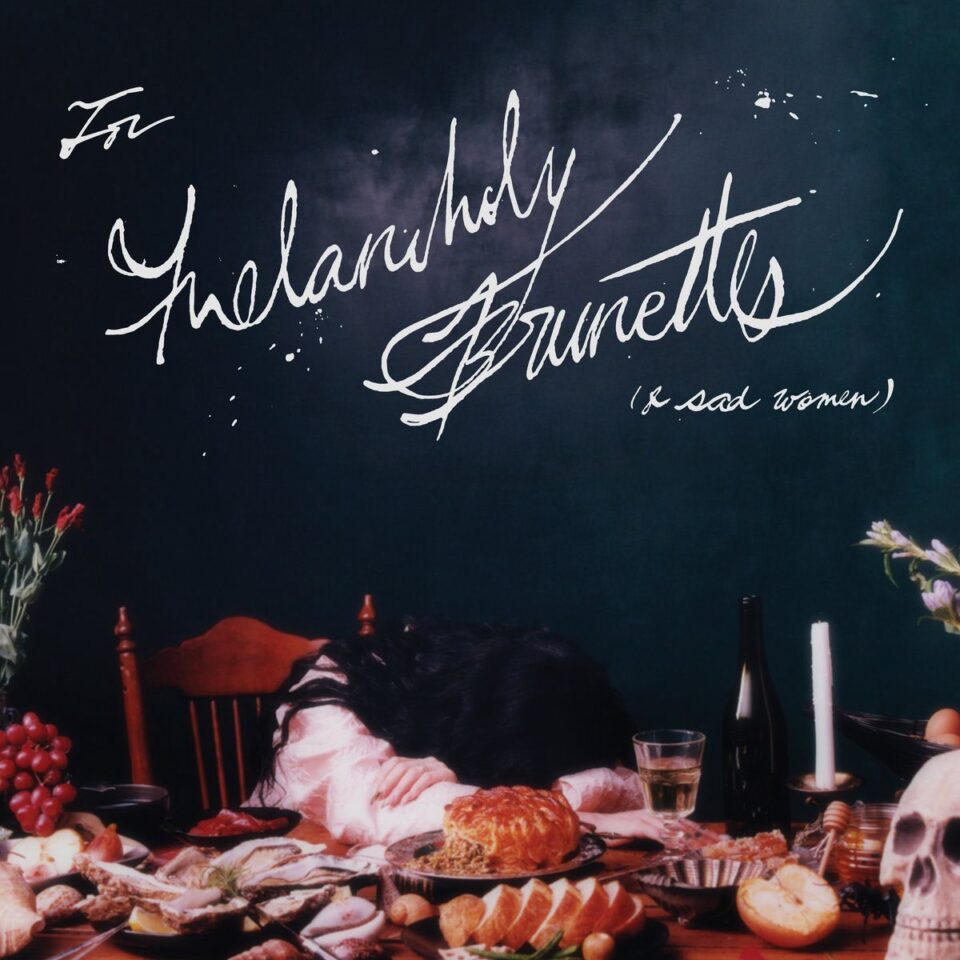
Japanese Breakfast, For Melancholy Brunettes (& sad women)
With swelling strings and a nod to Renaissance poetry, For Melancholy Brunettes’s lead single “Orlando in Love” heralded the arrival of a second New Romantic movement this year. Its lyrics drop the album title, a reference to John Cheever’s short story “The Chimera”—and, through the alluring siren portrayed in its music video by Korean trans activist JUNGLE, they offer a thesis statement for a record preoccupied with the agony and ecstasy of temptation. Michelle Zauner isn’t afraid of the dark, and there’s terrors in this album’s depths, a hint of salt in the honey water. The bitterness bubbles up to the top on “Men in Bars,” a reworking of “Ballad 0” from Japanese Breakfast’s 2020 pop project BUMPER. In For Melancholy Brunettes’ version, a pedal steel adds country gloom, and there’s a surprise duet from Jeff Bridges—the Dude himself—whose low register creates magnificent dissonance with Zauner’s soprano. The record is particularly beguiling, too, when she sings grisly lyrics about exploding hearts (“Honey Water”) and running her guts through a spoke (“Here Is Someone”). How intoxicating, to drown in the sea of love—and how sweet. — Annie Parnell
Read our review of For Melancholy Brunettes (& sad women) here.

Jensen McRae, I Don’t Know How but They Found Me!
Jensen McRae makes the type of soothing folk-pop that’s cathartic to cry to. I Don’t Know How but They Found Me! invites you to feel your feelings rather than hide from them as the songwriter sorts through the wreckage left by two flamed-out relationships. The title takes its name from a Doc Brown quote right before Christopher Lloyd’s Back to the Future character gets gunned down, only to have it be revealed that he was wearing a bulletproof vest all along. McRae’s emotional storytelling follows the same arc, moving from capitulation to love pangs and denial in “The Rearranger” and “I Can Change Him,” to working through emotional trauma in “Daffodils,” to the healing realization that she’s stronger than the love that she feels on “Praying for Your Downfall” and “Massachusetts.” The songwriting is lovely, and her powerful alto strikes at the center of your heart when she croons “Let me be wrong” about her deteriorating romances. Folk-pop has had a semi-renaissance in the past half-decade, and I Don’t Know How but They Found Me! has McRae well-poised to be the next star in the scene. — Kevin Crandall
Read our Breaking profile with McRae about I Don’t Know How but They Found Me! here.

Julien Baker & TORRES, Send a Prayer My Way
At this point you could fantasy-cast your own version of which indie rockers might come together next to record their debut country album. The scene isn’t at a deficit for such signifiers as the pedal steel, dobro, fiddle, and twangy lilt. And yet, as evidenced by Send a Prayer My Way, perhaps no duo is better suited to bring out the best in such a formula than Julien Baker and TORRES. As with any good songwriter pairing, this is largely thanks to how they approach compositions and subject matter from contrasting but complementary angles. Much of Send a Prayer is centered on addiction, something both artists have written about in the past. On “Bottom of a Bottle,” it’s TORRES taking the lead with their robust, sardonic vocal stylings, resulting in the kind of spur-spinning country ballad where love (and plenty else) runs out with the last drop of booze. “Dirt,” on the other hand, sees Baker—her voice as dewy and urgent as ever—getting at something far more naked and illusive, a still-cauterizing wound that threatens to never heal. Baker and TORRES are clearly comfortable exploring the outlaw country tradition, but hearing how they braid their instincts to become more than the sum of their parts is what truly sets this duo apart. — Sean Fennell
Read our review of Send a Prayer My Way here.

Lambrini Girls, Who Let the Dogs Out
We didn’t have “queer feminist UK punks namecheck a Bahamian Y2K one-hit wonder and become Iggy Pop’s favorite new band” on this year’s Bingo card, but here we are. And Brighton’s post-punk provocateurs Lambrini Girls provided exactly the soundtrack that Iggy and the rest of the planet needed for white-knuckling through this barmy year, brimming as it is with white-hot wrath and blue humor. On their rambunctious, riotous, rageful, and yet still strangely joyful full-length debut, self-described “cunts” Phoebe Lunny and Selin Macieira-Boşgelmez school the haters with a 29-minute lesson in—to quote the album’s proudly profane cheerleader chant—“Cuntology 101” as they breathlessly, brattily take on police corruption, homophobia, xenophobia, capitalism, and music-industry inequity, among other hot topics. But they save their best bog-mouthed takedowns for the so-called nice guys viciously skewered in “Big Dick Energy,” for diet culture in the Kate Moss–quoting “Nothing Tastes As Good As It Feels,” and for predatory office scumbags in “Company Culture.” It’s all so unsubtle that Lambrini Girls would come across as some X-rated Portlandia sketch if their barbed bops weren’t such hooky, fuzzy, scuzzy, scruffy, C-U-N-T-Y fun. And besides, subtlety is sooo 2024. — Lyndsey Parker
Read our review of Who Let the Dogs Out here.

Lucy Dacus, Forever Is a Feeling
For a brief period of time in between 2022 and early 2024, boygenius seemed to rule the world. A creative collaboration between Julien Baker, Phoebe Bridgers, and Lucy Dacus, it was a band that, for whatever reason, far eclipsed the success of the three songwriters’ individual careers. That “for whatever reason” modifier isn’t a slight on the trio, but more a question of why it took the trio bandying together for more mainstream success to reach them. With that band now on hiatus, there’s time to focus on their individual careers again. While Bridgers has remained inactive on the recording front, and Baker released an album with her new collaborator TORRES, Dacus put out this fourth solo full-length and first release since boygenius took off. As its title suggests, it’s a rumination on love—the highs, the lows, the terrors, the joys, and all the in-betweens that come with being in a relationship. Inspired in part by her own relationship (since boygenius started, Dacus and Baker have started seeing each other, and are currently living together in LA), it navigates what it means to be in love, answering questions as it asks them. Dacus once again balances darkness and light, whimsy and pathos, to near-perfection to produce a record that truly manages to live up to the profound emotions conveyed by its title. — Mischa Pearlman
Read our cover story on Dacus for Forever Is a Feeling here.

Perfume Genius, Glory
Look, I’m probably only saying this because I know that indie-folk songwriter Blake Mills produced Glory, but it’s crazy how quickly into the project it becomes clear that the studio wizard is the perfect fit for Mike Hadreas’ specific style of rock music. Opener “It’s a Mirror” features guitar parts and percussion that sound like they descend from very old trees, and is there anything more Millsian than that crisp, forest-dense crunch of fingers sliding up and down a fretboard? What I like best about the opening track is that despite the brilliant ease of Hadreas and Mills’ production (that would be a good law firm name, FWIW), the song still hinges on the strength of its lyrics and melodies. Hadreas is one of the best narrators in rock music, a truly underrated wordsmith; pen game strong, as the kids say. Check out the way he wrestles with achievement, so succinctly captures the feeling of desperately wanting satisfaction in success while knowing it comes from something else entirely: “What do I get out of being established? / I still run and hide when a man’s at the door / Polishing boots down a line in the basement / When I should be riding outside on my own.” We all should be outside riding on our own, but gosh is it easy to run and hide instead. — Will Schube
Read our review of Glory here.

PinkPantheress, Fancy That
At barely over 20 minutes, Fancy That is a caffeinated high that teeters on the edge of an acute anxiety attack. PinkPantheress’ UK garage and jungle lexicon is swift and vibrant, dotted impeccably here with ad-libbed samples and melodies that elevate these tracks to euphoric peaks. She’s precise with every song’s slight shifts, interrupting lush strings and high-speed drumbeats on “Noises” with a “What the fuck is that?” from Nardo Wick’s “Who Want Smoke??” or shifting gears from plush vocals to straightforward monologue on “Nice to Know You.” Pink knows exactly how to break a beat up to set off a different kind of dopamine hit, bottling up the sleek magic of guileless, late-night exhilaration on that former track as it shifts from flickering, fluorescent breakbeats to a juvenile sense of panic that the night will end once her parents walk through the door. Her satiny vocals never sag with unease, although her lyrics—paired with heart-palpitating drumbeats—suggest she’s doing everything to keep her cool. “I’ve suffered quite a few times with paranoia,” she admits on the sugary diss track “Illegal.” That suspicion still lingers on “Noises” when she sweetly asks, “Am I hearing things, or is that someone there?” Fancy That is brimming with cute thrills. The stakes aren’t high, but there’s a possibility that anything can happen. — Margaret Farrell
Read our review of Fancy That here.

Pulp, More
Artists who saw their biggest success three decades ago are enjoying a genuine renaissance—though few more triumphantly than Pulp. Their sublime new James Ford–produced album More arrives 24 years after their last full-length, We Love Life, and stands as arguably their strongest work since the iconic Different Class from 1995. Primary songwriter Jarvis Cocker remains a master of narrative lyricism, pairing sly wit with poignant observations about life’s smallest details and heaviest burdens. Now nearing senior-citizen status, his musings carry the ache of aging, tempered by the clarity of experience, all of which is delivered with his signature sauciness. Reflecting the album’s maximalist title, Cocker and core bandmates Mark Webber, Candida Doyle, and Nick Banks have expanded to a nine-piece, incorporating strings, electronics, and auxiliary percussion. These additions fill out the band’s live sound and elevate More, lending the album a richness and polish that’s as sleek as Pulp has ever sounded. From the Bowie-esque grandeur of “Partial Eclipse” to the disco-Western flair of “Got to Have Love,” the wistful “Spike Island” to the cheeky, self-referential “Tina,” Pulp are back with a vengeance—and how we’ve missed them. — Lily Moayeri
Read our review of More here.
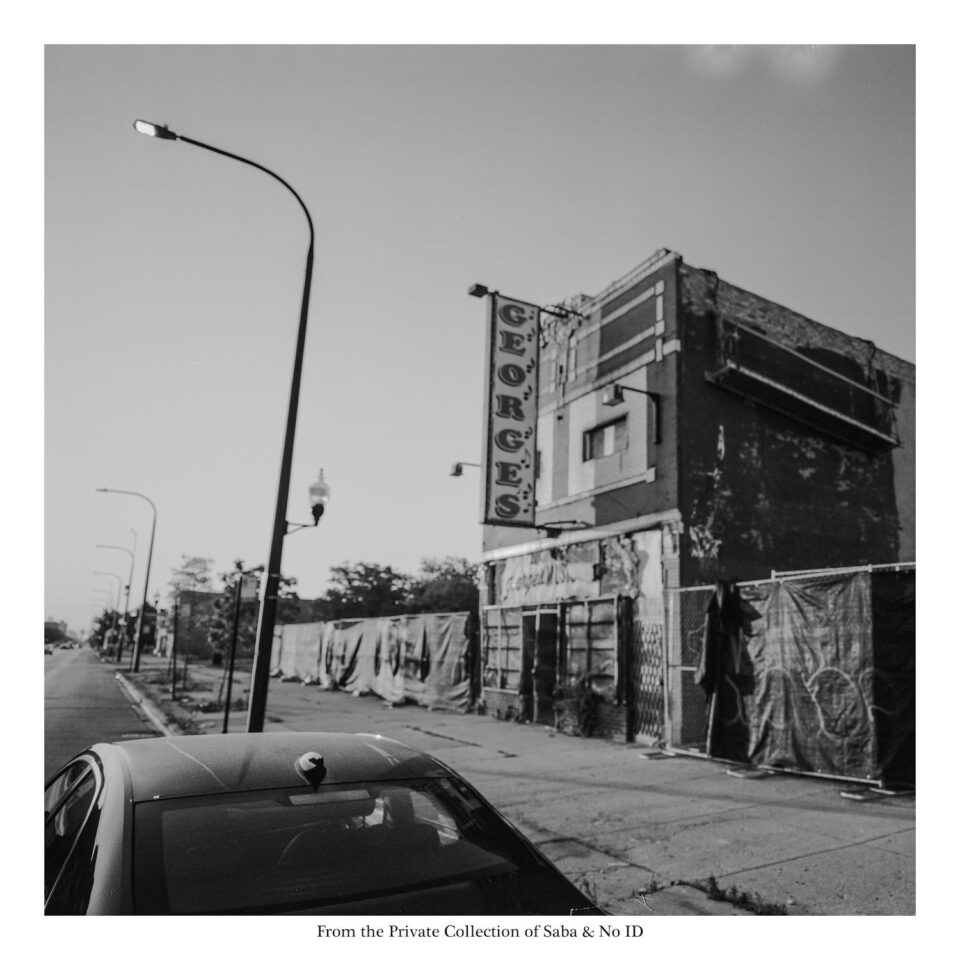
Saba & No I.D., From the Private Collection of Saba & No I.D.
When we spoke with Saba ahead of the release of his new collaborative album with No I.D., he talked about his struggle to find a sound that matched the way he felt. On From the Private Collection, the Chicago rapper runs through an emotional spectrum that touches on Black power, self-confidence and self-doubt, love, and the divine. Though the project was a long time in the making, Saba didn’t feel comfortable putting it out until he found the right mixture to encompass the swath of emotions that had encapsulated his life since the 2022 release of Few Good Things. “It’s like, ‘I’m not looking for it to sound good, I’m looking for it to express something right down there,’” he explained, pointing to his heart. Despite not needing the album to sound good, No I.D. doesn’t make music that ever sounds bad, so that worry was quelled through working with the right producer. Emotionally, the album hits hard, with Saba taking listeners on a ride through his world, both spiritually and literally. The magic of From the Private Collection is how thoroughly and clearly Saba and No I.D. bring us into their space. — Will Schube
Read our interview with Saba and No I.D. about From the Private Collection of Saba & No I.D. here.

S.G. Goodman, Planting by the Signs
The title of Planting by the Signs comes from southern Appalachian folkways, a custom of orienting life cycles by the moon that S.G. Goodman grew up with in Western Kentucky and rediscovered in the Foxfire books. The record is a rumination on that ritual reconnection to nature, and what to do when ritual itself seems futile. Marked by the deaths of her mentor Mike Harmon and her beloved pet dog, as well as the reconciliation with her former collaborator Matthew Rowan, Goodman navigates grief and renewal in her lyrics—and, like in nature, these seeds grow in wild and sometimes surprising shapes. There’s a stroke of righteous fury on lead single “Snapping Turtle,” but a wistful serenity permeates the Bonnie “Prince” Billy duet “Nature’s Child,” written by Asheville songwriter Tyler Ladd. Woven through it all is a sense of community: as a balm, as a shelter, and as a fortifying force. When Goodman cries “I have seen the light” on “Michael Told Me,” she’s not preaching—she’s witnessing the redemptive power of our connection to each other. — Annie Parnell
Read our interview with Goodman about Planting by the Signs here.
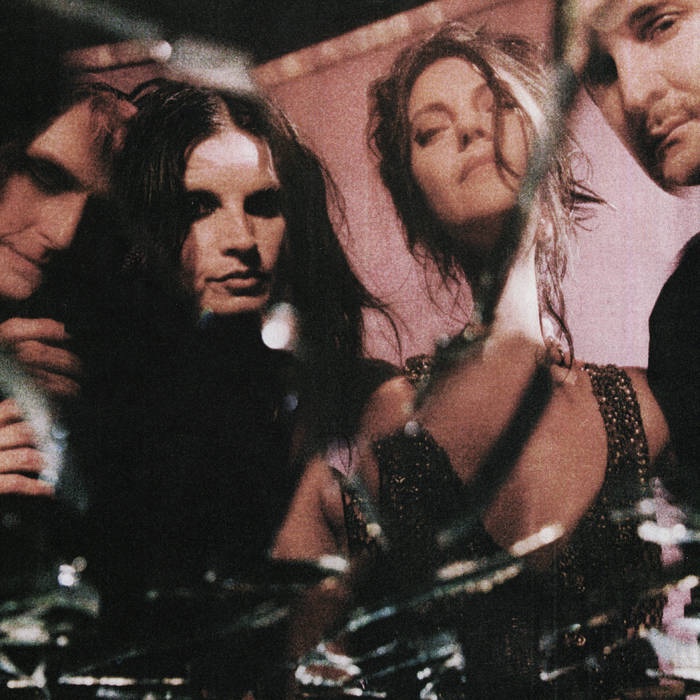
Sharon Van Etten & the Attachment Theory, Sharon Van Etten & the Attachment Theory
The first Sharon Van Etten album to feature co-billing with a full band came from a place of boredom. The singer was looking for a fresh perspective, as she explained to FLOOD in our digital cover story from February: “I got to the point where I was just really tired of hearing myself and making everybody else listen to me sing about me.” So she asked her live band to join her in the studio for some jamming. Those sessions morphed into a new group—Sharon Van Etten & the Attachment Theory—and the first full-band album in Van Etten’s brilliant discography. The Attachment Theory’s first record finds the songwriter and her collaborators embracing new wave, post-punk, dream pop, and good ol’ straightforward rock ’n’ roll. Opener “Live Forever” is a slow-burning meditation on eternity and the finite nature of our lives, building toward a volcanic eruption. The things Van Etten is preoccupied with become clear rather quickly on the album, as “Live Forever” is followed by “Afterlife,” another electronic-leaning rock cut that features a stadium-ready chorus. Whether exploring the intimate or universal, with a full band or solo, Sharon Van Etten continues to prove that she’s nowhere close to boring. — Will Schube
Read our cover story with Van Etten about Sharon Van Etten & the Attachment Theory here.

Stereolab, Instant Hologram on Metal Film
Stereolab’s career is as amorphous as a lava lamp: always moving and reforming itself within its electronic-pop and post-rock chemical miasma. After taking a decade-long break following 2010’s Not Music, the Groop gravitated back together in 2019, with the newly released retro-futuristic result Instant Holograms on Metal Film blasting toward the year 2030 in a flying car. Guitarist Tim Gane and vocalist Laetitia Sadier have always kept things fresh by mixing and matching genres like alchemists, and this bubbling record is no slouch on the science of musical style. Stereolab’s motorik machinations rarely chill out on Instant Holograms. One of the album’s many main events is “Electrified Teenybop!” with its ebullient and Francophilic production and infectious jazzy-rock strut. “Aerial Troubles” slots into its UFO vibes early and often for the Stereolab faithful, while the rest of the record flies in all kinds of directions that still feel cohesive. Modern synth-pop can be so attached to ’80s pop excess, but Stereolab’s rich influences are measured in more than simple genre mashups. The veteran group maintains relevance in the ever-evolving world of electronics due to their unwavering attention to the grooves. They run each new album like a madcap experiment in outer space. — Kyle Lemmon
Read our review of Instant Hologram on Metal Film here.

Tunde Adebimpe, Thee Black Boltz
Long a purveyor of abstract R&B in his role as lead vocalist/lyricist for TV on the Radio, it’s no surprise that Tunde Adebimpe’s solo debut carries with it a similar sonance where glittering rock-soul is concerned on songs such as “Magnetic.” And sure, even the weirdly ominous “Pinstack” with its spooky a cappella harmonies sounds like an outtake from his post-everything band’s 21-year-old debut Desperate Youth, Blood Thirsty Babes. After that, however, Thee Black Boltz wildly spins the wheel for all manner of moods and musics for Adebimpe to leap across. Want to imagine Tunde’s cut-and-paste crooning as he joined New Order? Try the slapped-dry synth-pop of “Somebody New.” Think he should give pedal-steel-driven Americana a shot? Yee-haw for “God Knows.” Looking forward to something starry-eyed and shoegaze-y? “Streetlight Nuevo” has what you’re looking for. What’s most fantastic about the everything-all-at-once-ness of Thee Black Boltz is that it never sounds like Adebimpe is trying to check off boxes, or pastiche the pop market. Instead, it’s the sound of curiosity, of what an artist with 30 years in the field does when left to his own devices. — A.D. Amorosi
Read our interview with Adebimpe about Thee Black Boltz here.

Turnstile, Never Enough
It’s hard to think of a band that’s more rigorously judged against the rigid orthodoxy of their chosen genre than Turnstile. Perhaps the self-produced Never Enough will mark the point at which they officially fail their hardcore purity test—the moment where they decide that the scene that birthed them was only ever meant to be an incubator, not a set of values to carry like an albatross around their necks. Of course, rules exist for a reason, and by eschewing hardcore’s aesthetic code, the Baltimore band finds that some things are lost and some things are gained. With its 14 songs spanning a full 45 minutes, Never Enough steps back from the terse performances and taut constructions the scene is known for. Deprioritizing their usual spring-loaded tension means Turnstile now has room to wander, and what Never Enough lacks in ruthless momentum it makes up for in wide-eyed wonder: this is the hardcore punk’s version of a magical mystery tour, a winding travelogue through new textures and sounds. There are still monster riffs, but also wide-ranging rhythmic adventures; still pulverizing guitars, but also horns, synths, and tuneful singing. It attests a band that values curiosity over dogma, one that desires to use its burgeoning fame not as conservators of an established movement but as trailblazers of a brand new one. — Josh Hurst
Read our review of Never Enough here.







